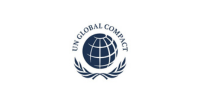

Ibrahim Alhelali is the Executive Director of the UN Global Compact Network in Saudi Arabia and the Chair of the Regional Network Council for Middle East. Prior to that, he worked as an Economist, the Head of Partnerships and Development Finance in the Resident Coordinator Office in Saudi Arabia. He obtained a bachelor's degree at Merrimack College in Boston, Massachusetts USA. He received a masters degree in Economics, from University of Bologna, Italy.
He worked as a medical assistant at Lawrence General Hospital in the US. As well as an Economist at the Vision Realization Office of the Ministry of Health in Saudi Arabia. Alhelali joined the United Nations in June 2020 and he was one of the Coauthors of the UN Diagnostics Paper on the Socio-Economic Impact of COVID-19 in Saudi Arabia and How to Build Back Better. As well as the UN paper on The role of Academic Institutions in Achieving the Saudi Vision 2030 and the United Nations Sustainable Development Goals.
How can we ensure that education remains relevant in a world of constant change?
Multisector partnerships as a powerful tool for aligning lifelong learning with emerging trends
To explore the role of Saudi universities and the private sector in driving education reforms aligned with Vision 2030 and the SDGs. This session will emphasize collaboration between academic institutions and companies to foster innovation, sustainability, and skills development.
6-7 October, 2024
This workshop, delivered by Be GLAD in partnership with Spacetoon Education, will highlight a Research-Based AND Field-Tested instructional system that increases critical skills, including reading, writing, listening, and speaking. This innovative system has been used extensively to transform districts within the famed Silicon Valley of California and across the US for over 20 years, producing creative problem-solvers of the future. With recent developments in technology, this award-winning instructional system is now moving to empower educators throughout the Middle East and Africa. In this workshop, you’ll learn 5 fundamental instructional strategies from the most effective system and the process to gain mastery of key indicators of success to achieve academic excellence
Innovative programs that promote equity, access, and quality in education and the creative strategies they use to navigate funding challenges and achieve impactful results. This session is packed with thought-provoking discussions and practical takeaways, offering a glimpse into how non-profits are transforming education to shape a brighter future for teaching and learning.
This session brings together content creators who excel in delivering knowledge through storytelling, by weaving complex ideas into engaging narratives.
This discussion focuses on the pivotal role of vocational training in addressing the skills gap and equipping the workforce with the necessary competencies to thrive in today's dynamic job market and how it is enhancing employability and entrepreneurship. We will share insights on effective vocational training models, collaborations between educational institutions and industries, and strategies for preparing individuals for success in the evolving workforce.
Points of Discussions:
Art Residencies as Catalysts for Artistic Growth (skill development, focus and immersion, feedback and critique)
Residencies and Professional Development (networking opportunities, exhibitions and visibility)
Art Residencies as Spaces for Reflection and Conceptual Development (time for reflection, development for new ideas)
Residencies and Education (integration with art education, mentorship and guidance)
Challenges and opportunities (funding, support, residency models)